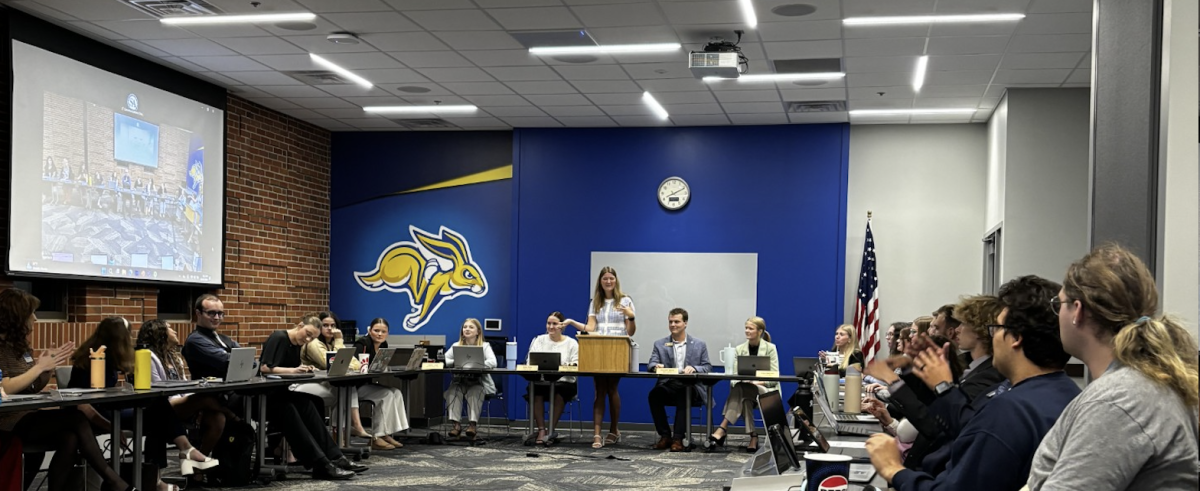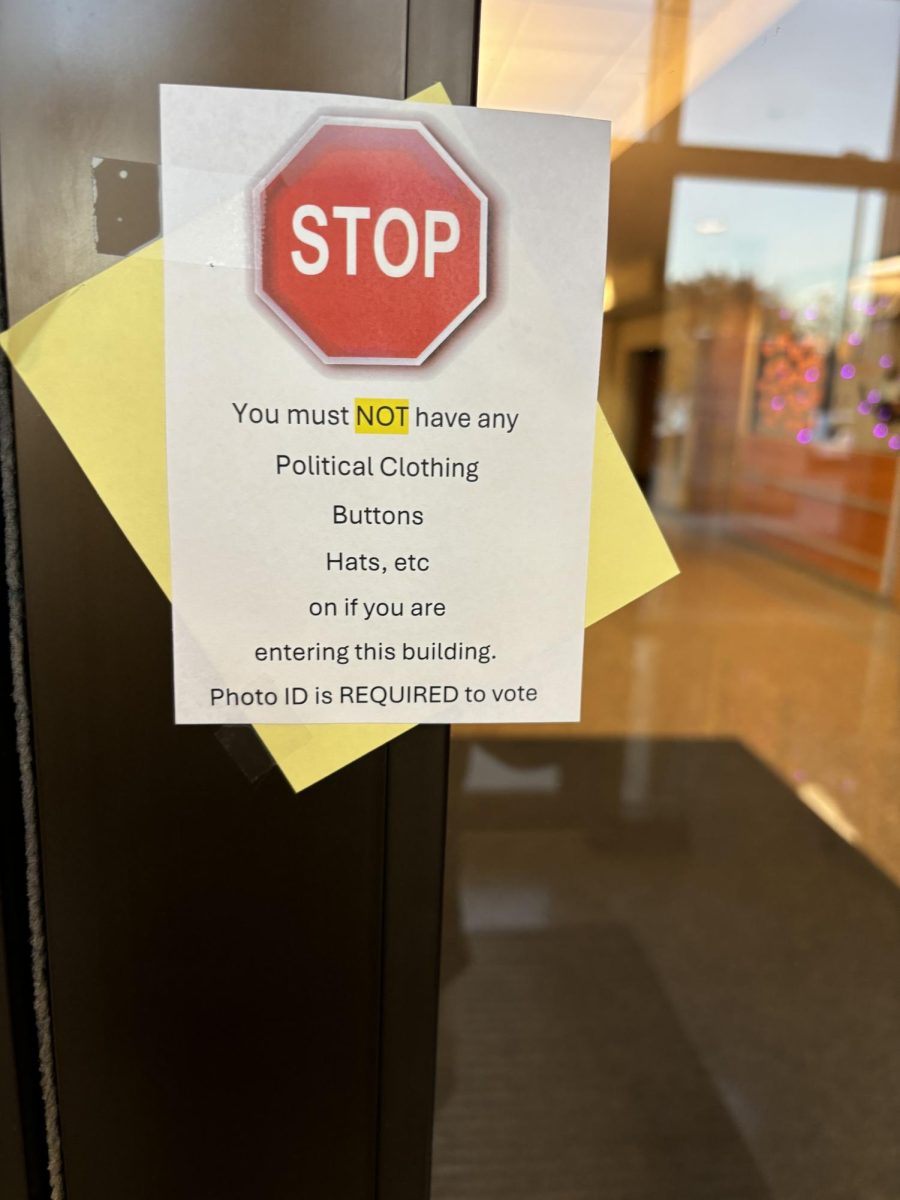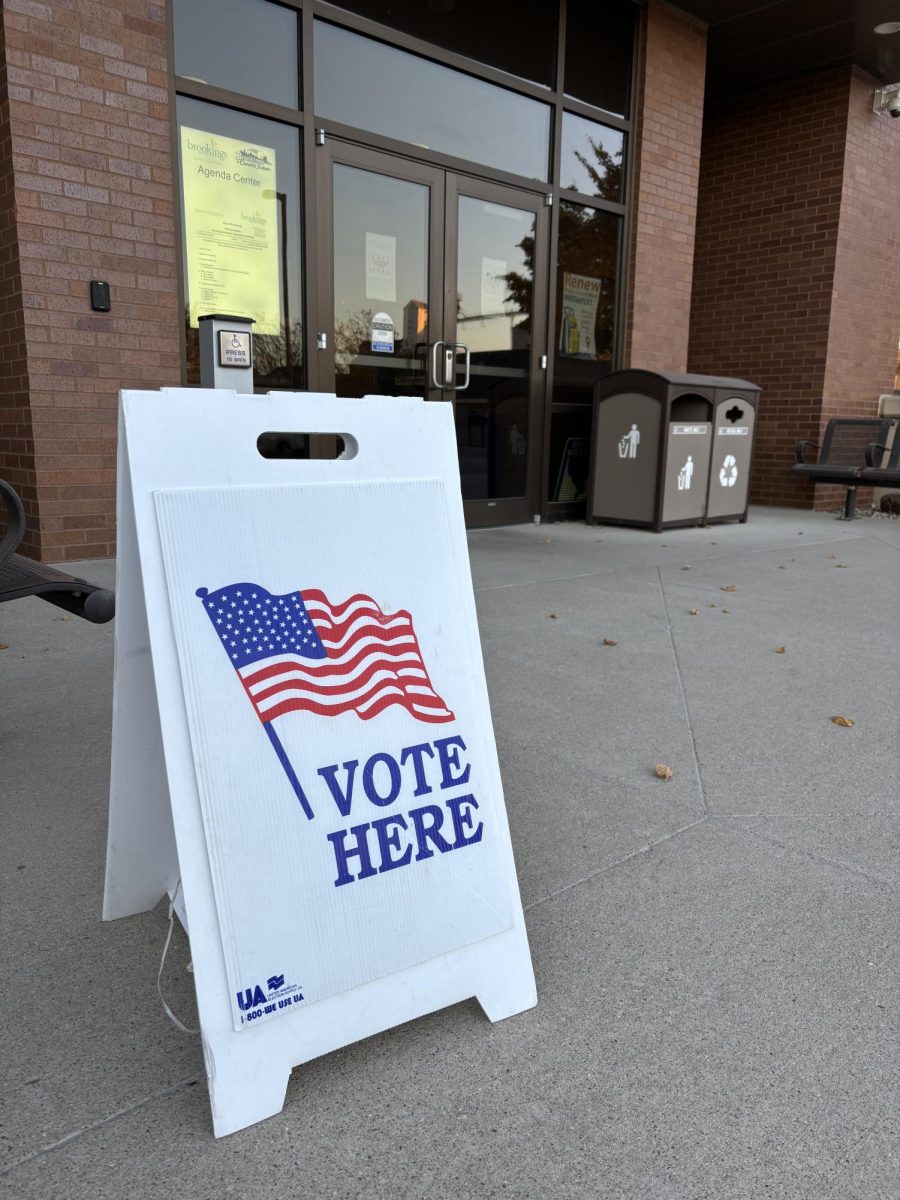Opt-Out: Communities across South Dakota weigh in on funding option
October 8, 2003
Colleen Stein
The under-funding of public schools in South Dakota stems from an increase in enrollment while state funding remains the same.
The amount of funds collected to support each student decreases as more children enter the school system.
Unable to support the increasing demands of state dollars needed for general funds, several schools in South Dakota and throughout the Midwest are looking to the option of exercising an opt- out from state imposed taxes for surrounding communities.
What “opting out” means is when a school is threatened with program cuts or consolidating with other schools, local district residents can increase the amount which they pay in taxes that goes towards school funding.
Jay Trenhaile, an SDSU Associate Professor of Counseling and Human Resources, serves on the Brookings education school board.
“The concept is not a new idea. States like Minnesota are using the option as well,” Trenhaile said. “The opt out vote is issued so public schools in South Dakota that are under-funded can continue programs, and in some cases, avoid consolidation with neighboring schools.”
The option of opting to exceed a state-imposed tax levy is good news for teachers, students and their parents, but bad news for citizens residing in school districts who lack ties to the school being funded.
Some South Dakota communities unanimously agree to a tax increase to benefit schools lacking funding, while others must face off in a vote to establish a decision. For an opt-out law to pass, two thirds of registered voters within the community must vote in favor of the new bill.
Like the many other public schools in South Dakota, the districts in Brookings have faced significant budget cuts over the past few years. In 2000, the city organized an opt-out vote, which failed to pass. A second attempt was made the following year and was successfully carried out. In addition to the $4,026 each student is granted each school year, the Brookings school now receives $750, 000 to go towards general school funds.
“We wanted to keep in place the same types of opportunities for the students coming in as those who have graduated experienced,” Brookings School Superintendent Orville Creighton explained. “With the former three-year budget-cut, some staff members would have lost jobs, class sizes would increase, and elective programs cut.”
The Bristol School utilizes the opt out taxation method and is also in the midst of exploring the possibility of merging with the nearby town of Groton. Bristol is in their second year of opting out resulting from of the vote taken in 2002, and now receives an additional $500,000 in funding support.
Groton recently passed a vote agreeing by 83.3 percent that a consolidation between the Groton and Bristol schools should take effect. The community of Bristol will vote whether or not to consolidate in an upcoming election on Oct. 21. If voters are in favor of the consolidation, the Bristol school will be closed and area students will be transported to Groton for the 2004-2005 school year.
In other school districts like Aberdeen and Huron, where budget reduction methods have been successful, an opt-out vote will not become a community issue for some time. In 2001, Aberdeen was forced to close Henry Neill Elementary and Howard Hedger Elementary; two of the six elementary schools within the town. Last year, the district also made an attempt to close the Simmons Middle school, one of two in the area, but the plan was overturned with citizens demanded its doors be re-opened.
Director of Finances for the Aberdeen School District Tom Janish explained that Aberdeen schools are currently on a three-to-four-year budget cut program that has eliminated over one million dollars, leaving them with just enough money to balance income with expenses.
“Right now, an opt-out vote would probably not pass,” Janish said. “However, we may be exploring that option in the next few years, especially if we face another round of budget cuts.”
Huron and surrounding schools are also looking towards other methods of saving money before approaching communities for additional funding support. A consolidation between the Hitchcock and Tulare school districts will take effect in the 2004-2005 school year. The school of Alpena recently dissolved, sending students to the neighboring districts of Huron, Wolsey, Wessington Springs and Woonsocket.
“Offhand, we’ve been reducing our budget by $500,000 for the past four or five years.” Huron Superintendent Randy Zitterkopf said.
Zitterkopf went on to explain that the issue of Huron opting out of their current taxation policy has not been seriously addressed within the school board.
As opt-out votes are a fairly recent issue for the state of South Dakota, records on which schools have opted out in the past are not yet available to the public.
Communications Director for the South Dakota Education Association, Al Bahe, was able to produce some fact on how many schools have attempted opt-outs in the past three years. Voting that took place in 2003 that will be carried out in the next year’s school term revealed thirteen votes to opt-out occurred in South Dakota. Of those 13, one went into immediate effect by the community’s unanimous decision. Six other attempts were voted into effect and one failed.
“When looking at the totals, you must keep in mind that the number of voting attempts will not always reflect the number of schools voting to opt out.” Bahe explained. “Taking Sioux Falls for example, when the first vote occurred in 2002, the issue failed but later that same year it was voted on a second time and passed. Although the both elections were held for the same school, each was counted as a separate opt out attempt.”
If South Dakota school enrollment continues to increase and school tax revenue remains the same, opt-out votes are certain to continue to be pushed by public schools.
As urban sprawl continues and the Midwest populations boom, small communities remain in danger of losing their intimate community schools. With proper state funding, like the opt vote, and the support of area residents, jobs and program within public schools can be rescued from extinction.





















